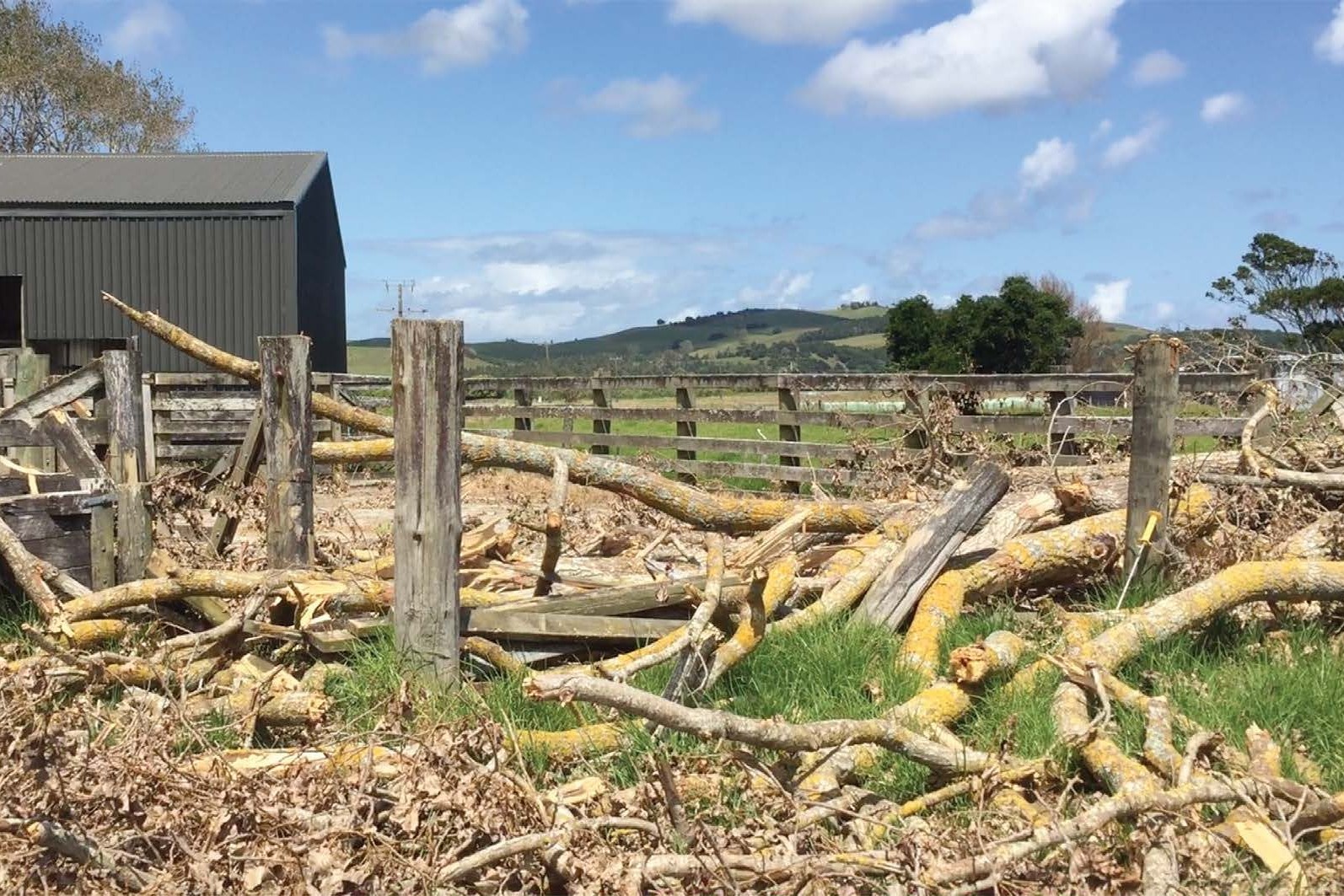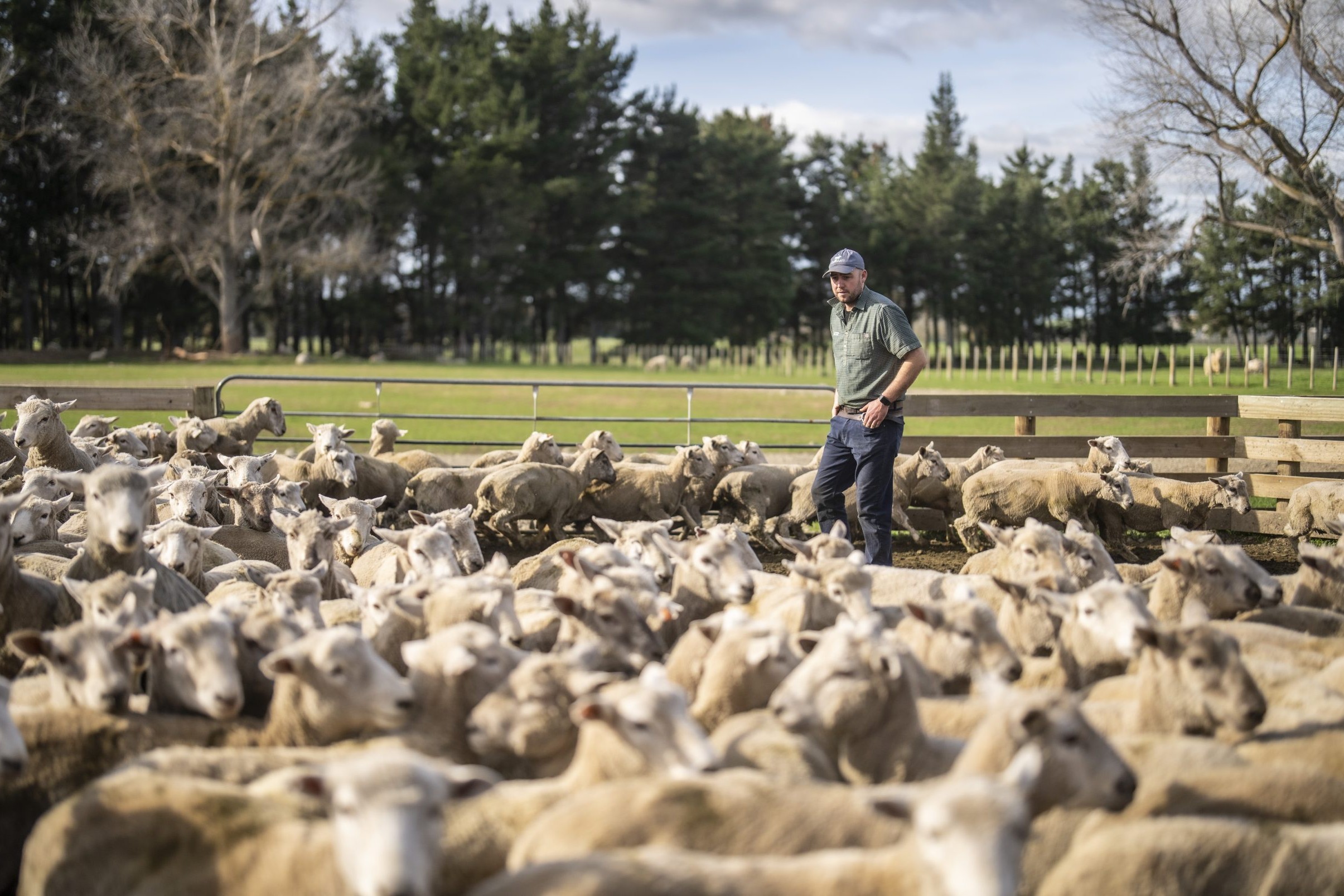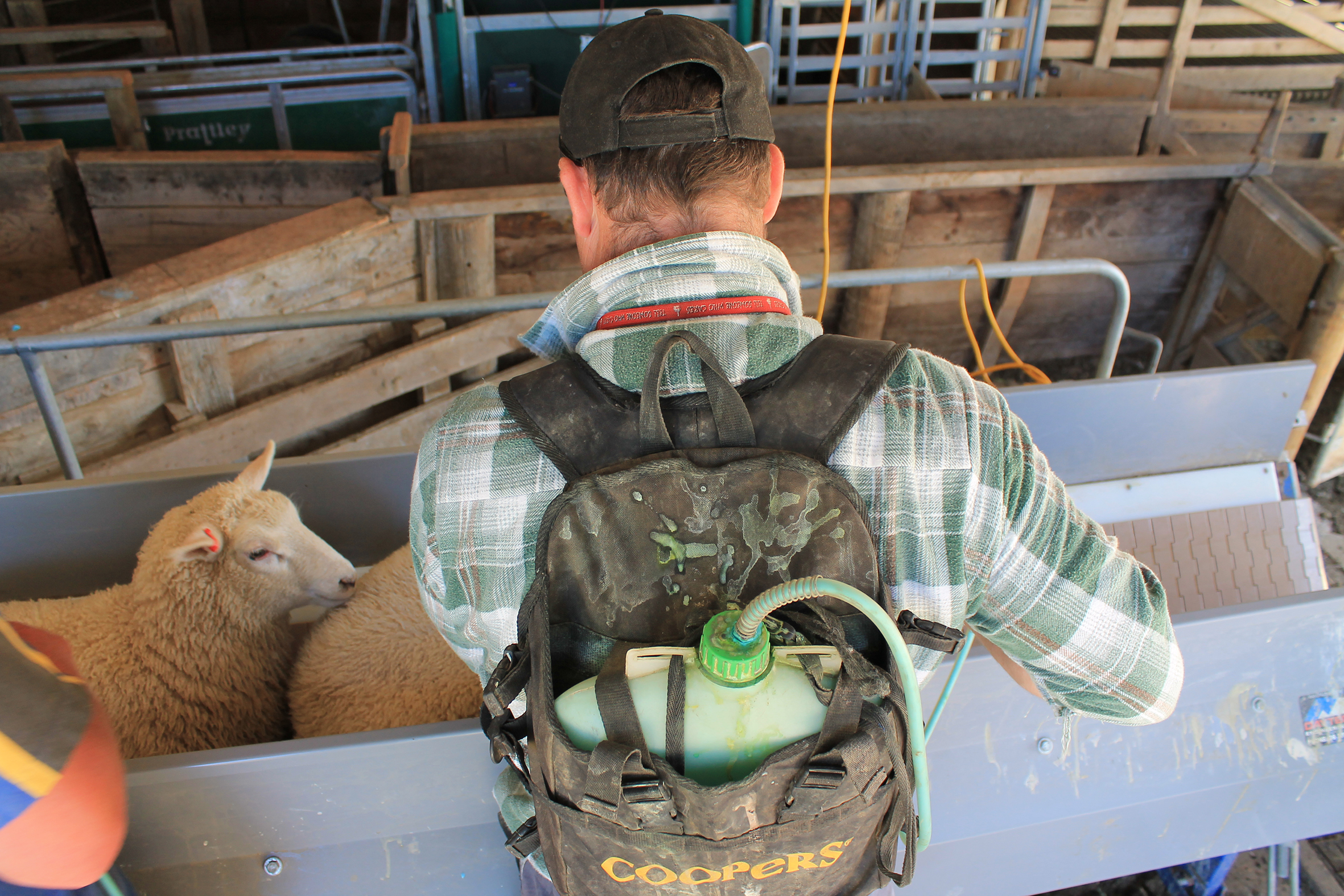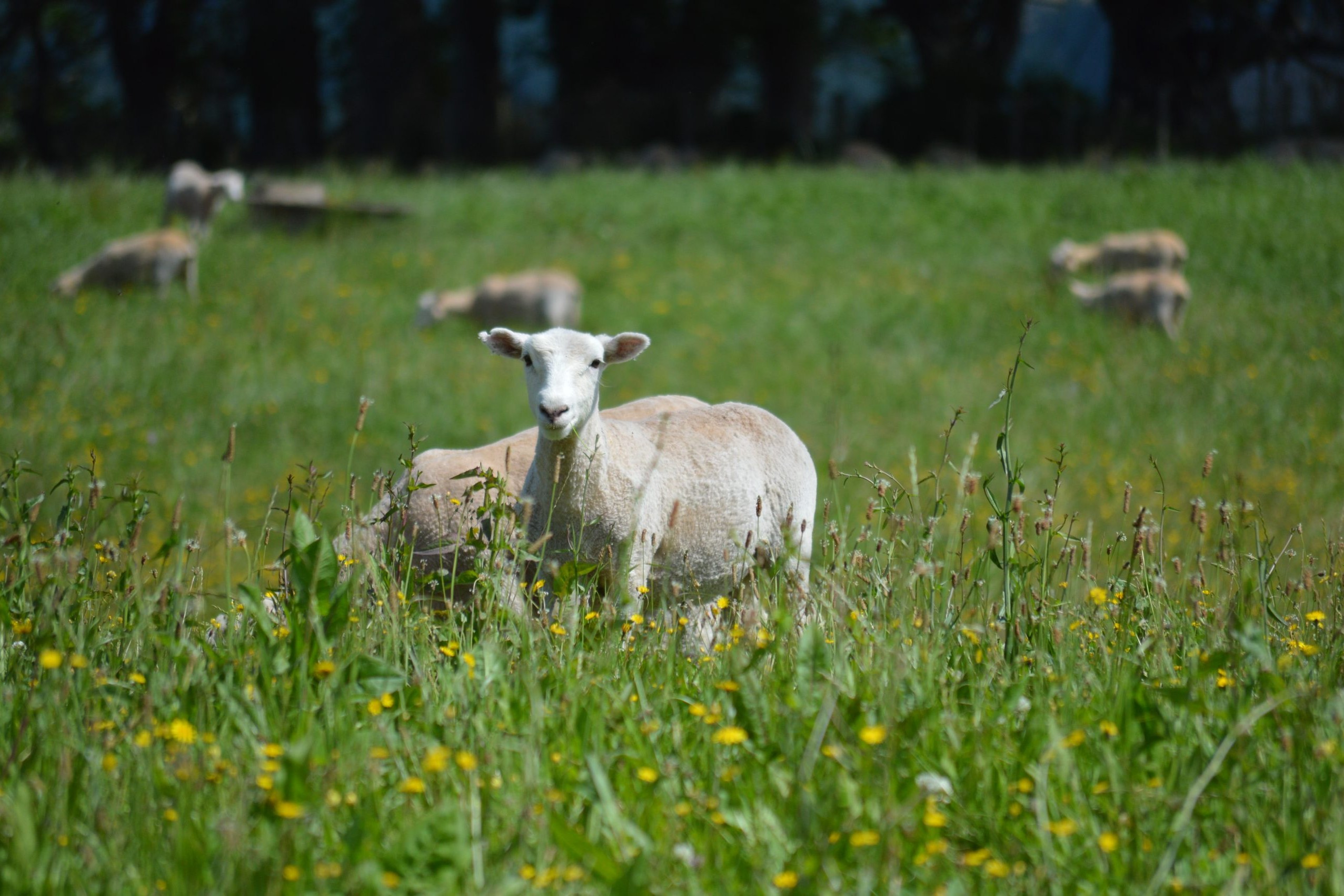An 80-year-old English poplar fell onto stockyards on the Northland farm of former agriculture minister Sir Lockwood Smith during Cyclone Gabrielle, costing him $20,000 to reinstate. More trees over fence lines saw one of his Belgian Blue bulls get in amongst heifer calves, temporary fencing had to be quickly used to keep pregnant cows away from fallen pines and macrocarpa and onfarm work has been set back by a month.
“But that’s nothing compared to Hawke’s Bay and Gisborne farmers,” Smith says.
“It just makes me cry to see what’s happened.”
Smith’s farm overlooks the Ruawai Flats. It had “quite a heavy bout of rain” during Cyclone Hale and came through the early northerly winds of Cyclone Gabrielle well. “But we were warned of the sting in its tail and that’s when the wind did most damage.”
Farm manager Adam Clarke was quickly out clearing away three fallen poplars across his driveway and another blocking nearby State Highway 12. A contractor with a 12-tonne digger dealt with the larger trunks.
While flats were underwater for three days, land on farms to the north was submerged for well over a week, causing pasture damage. Maize silage crops, already struggling through a very wet season, took a beating from the wind. Smith’s house was without power for less than 24 hours but a neighbour further away from the main road had to use a generator for two weeks.
Smith will be planting more native species in the future, after noting that not a single pohutukawa or totara blew over. However, hybrid poplars will still be used along creeks at risk of erosion because of their strong root systems.
Elsewhere in the country Smith says forestry harvesting needs to be limited, the issue of slash needs to be addressed and river dredging carried out regularly so a greater volume of water can be carried.
“The thinking around climate change isn’t as smart as it could be,” he says.
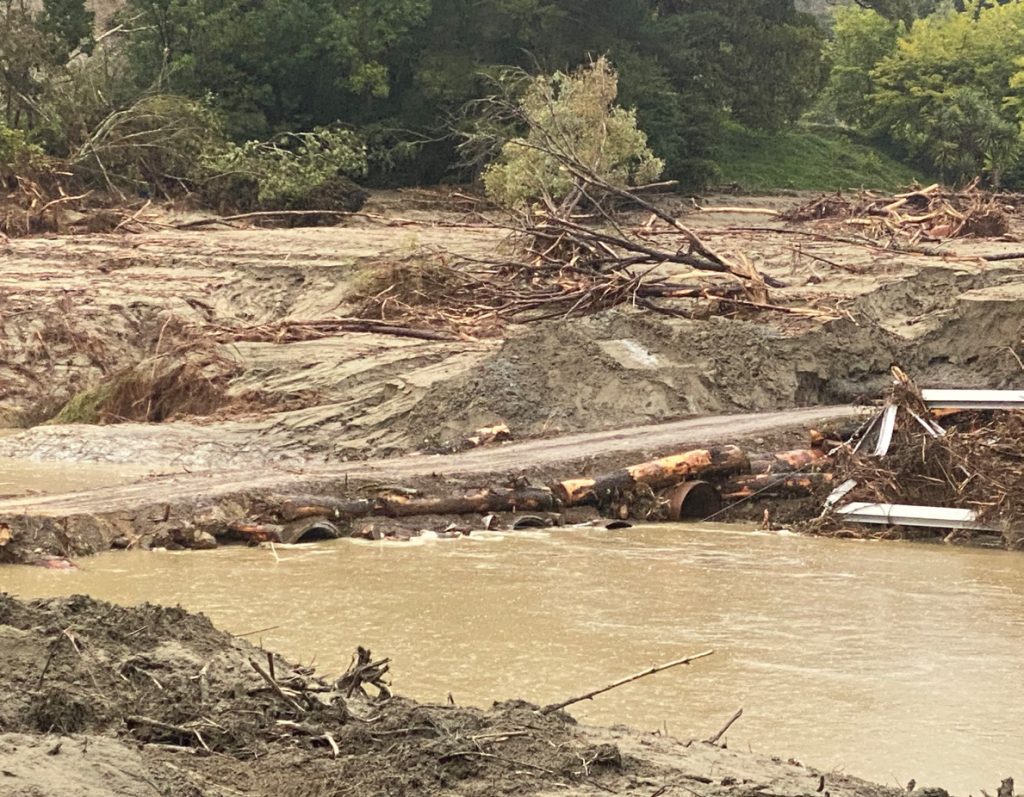
WALL-TO-WALL water is how Rissington Cattle Company’s Daniel Absolom describes the sight of the Mangaone River flowing through the Hawke’s Bay farm the morning after Cyclone Gabrielle.
“It was 15 metres high and two-thirds of the way to the roof on the second storey of the woolshed,” he says.
“A hay barn is gone. We were smashed pretty hard.”
In his house on higher ground, he heard 100-year-old trees crashing to the ground, “I knew it was bad.”
Daylight revealed kilometres of fencing buried in silt or slash, but the priority was to restore access, with a crossing over the unstable riverbed reinstated just nine days later. Fortunately, two 30-tonne diggers were already on the north, cut-off side of the riverbed, so once operators were flown in they were able to create a temporary four-wheel access.
A couple of hundred lambs have since been sent across to be held in yards on the other side, with Daniel and neighbouring farmers hoping a Bailey bridge will be in place by the end of March.
“It’s hard to accept help when you don’t have access.”
Due to good growing conditions, there’s enough feed for cattle, which make up 80% of Rissington’s stock and were due to be sent to the meat works on March 20, delayed for 10 days. Two-year-old bulls won’t go off the farm until May with older ones not due to depart until spring.
“We delayed weaning our calves, which in hindsight was a masterstroke,” Daniel says. “But getting rams to ewes will be a challenge.”
Stock water has been restored with generator-powered pumps at dams or springs, and they’ve set up some solar-powered electric fencing.
“But there’s still a lot to do before winter.”
The plan is to fence to silt lines then reassess next summer, but Daniel accepts some ground will never come back into production.
“You’ve got to listen to nature when she talks to you like that.”
Ask for help when you are ready
Ask for help when you’ve planned for it is the advice of David Acland. He and wife Kate’s Mt Somers Station was hit with flooding two years ago with the Ashburton River flowing through 120 hectares.
Lucerne was covered by silt and fences, culverts, water systems, tracks and shelterbelts were damaged, together with slips on their higher country.
He says the critical message is to make sure you ask for help when ready.
“But do it so it doesn’t place pressure on you. If people say they will turn up tomorrow you’ll feel you have to work alongside them. But you don’t want people coming and charging around when you’re not ready. Do it within your plan.”
In their case they got together with their whole farm team and the people they trusted to be part of what they soon realised would be a long-term recovery process. That could include farm advisers, banks and insurance companies – “the people you’re going to do it with”.
“Have your list and work through it because that gives you an idea of the direction..,” he says.
“If you’re under the pump you
don’t have to do everything now.
When you’re in the grind of it, it can be hard to realise you’ve actually achieved a lot.”
In their case fencing materials turned up from the Rural Support Trust three months after the flooding, which was very much appreciated.
“And look after yourself,” he says. “It’s easy to say, but hard to do.”
He was pleased to see affected North Island farmers getting together to chew the fat.
“Some of them don’t have a temporary fix yet, but then they have to do the permanent fix,” he says. “It’s not going to be sorted in one or two months.
The Aclands had access and machinery. But every situation is different.

